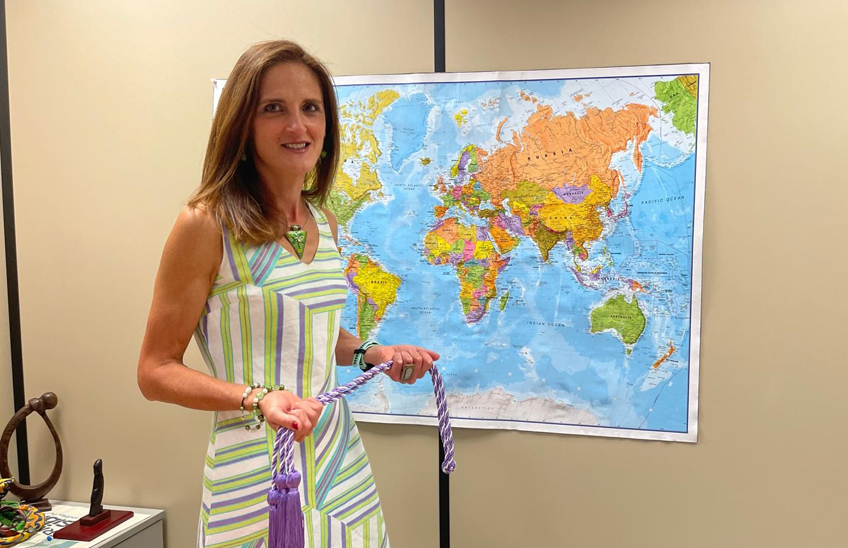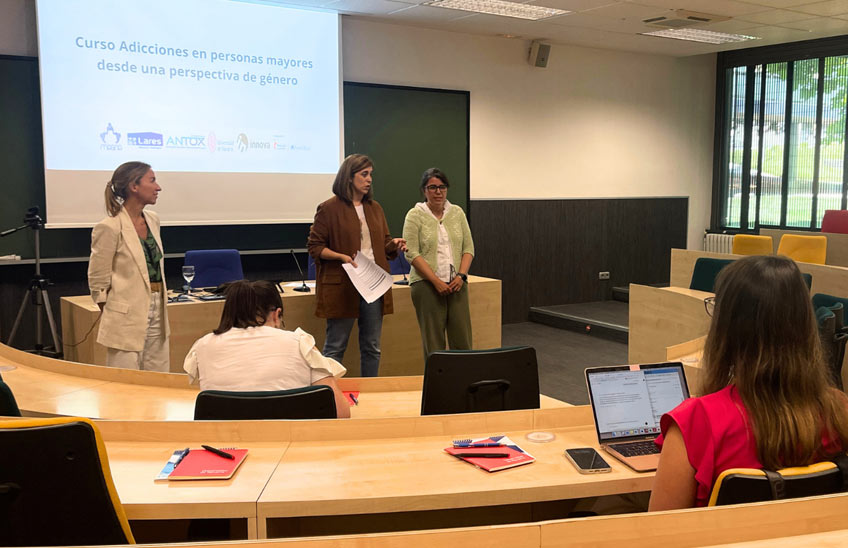"When cancer treatment includes the patient's family, the effectiveness of care is increased".
Cristina Alfaro has done her doctoral dissertation at the University of Navarra as part of a project to implement Family Nursing in the internship clinical oncology.

PhotoManuelCastells/Cristina Alfaro
11 | 01 | 2021
Cristina Alfaro, a new doctor in Nursing from the University of Navarra, has carried out her doctoral thesis in the framework of a project that aims to implement Family Nursing in the internship clinical in Oncology, with the help of the School of Nursing and the Clínica Universidad de Navarra.
"We have scientific evidence that when there is a approach of care directed at the family unit, the effectiveness of the cancer patient's treatment is increased and the negative effects of the disease are reduced. This results in result in a positive impact on both the patient and their family," explains the new doctor. "This is a long-term project deadline that will be developed in several phases," explains her manager, the director of department at Nursing Care for Adult Patients, Ana Canga Armayor, who coordinates the project together withNuria Esandi, also a lecturer at School .
The goal of Cristina Alfaro's thesis has been to diagnose the current context of the clinical internship in Oncology: "We wanted to know the attitudes and beliefs of the nursing professionals who work with these patients, to know what importance they attach to including the family in the care and what barriers and facilitators they find in the internship", specifies the researcher.
"To do this, we first had to have valid and reliable diagnostic instruments for this reality. As they did not exist in the Spanish context, in a first phase we undertook the translation of Anglo-Saxon tools with the help of 13 experts in Family Nursing and in management. In a second phase we validated the result with a sample of 263 nursing professionals from the hospital setting and finally 39 nursing professionals from Clínica Universidad de Navarra tested the three resulting instruments", adds Alfaro.
High psychological pressure and leave autonomy
The results from the validation tools indicated that there are several circumstances that act as a barrier at internship:"the first is that oncology nurses perceive that they are exposed to high psychological demands, while their autonomy to make decisions is leave. This generates little motivation to invite the family to participate in the care and to include this perspective in the day-to-day work. Finally, the nurses say that they do not see themselves as qualified without a training that provides them with knowledge, skills and attitudes for a family approach of cancer care", explains the new doctor from the University of Navarra.
Precisely the results of their study will serve as a basis for the design of a programme of training in Family Nursing in the context of Oncology and for the development of strategies that guarantee this effective and sustainable implementation in the internship clinic", concludes the director of thesis , Ana Canga.


